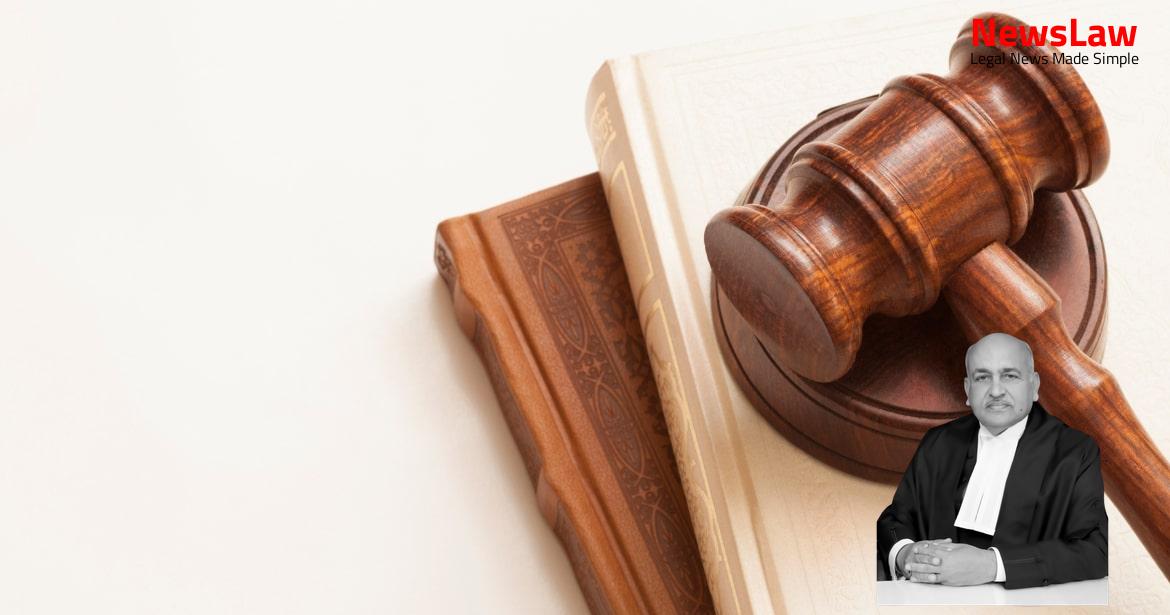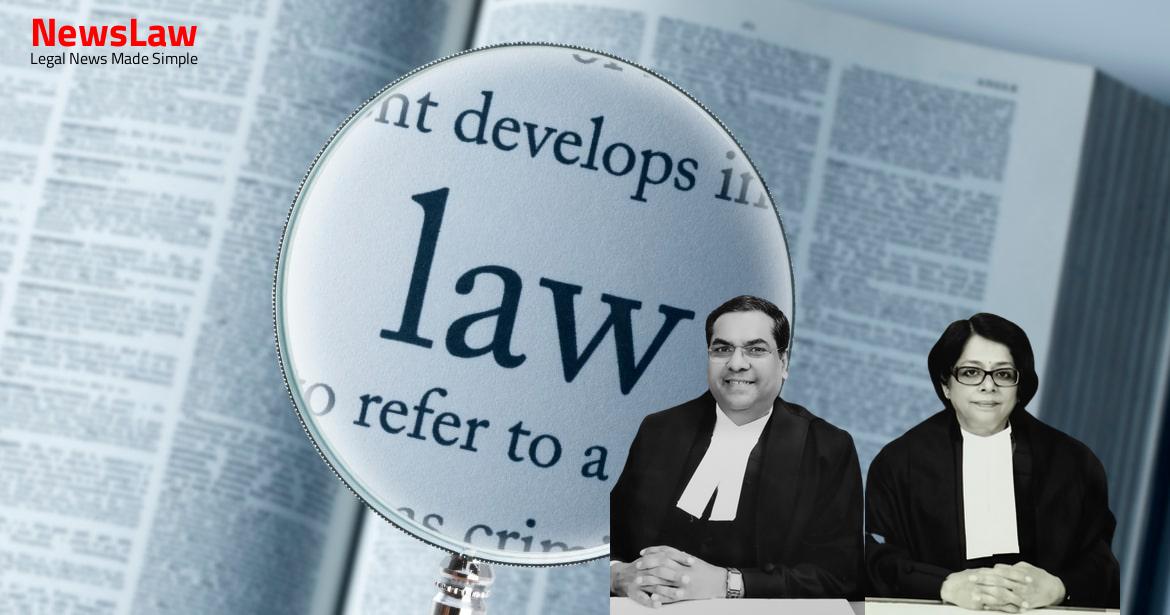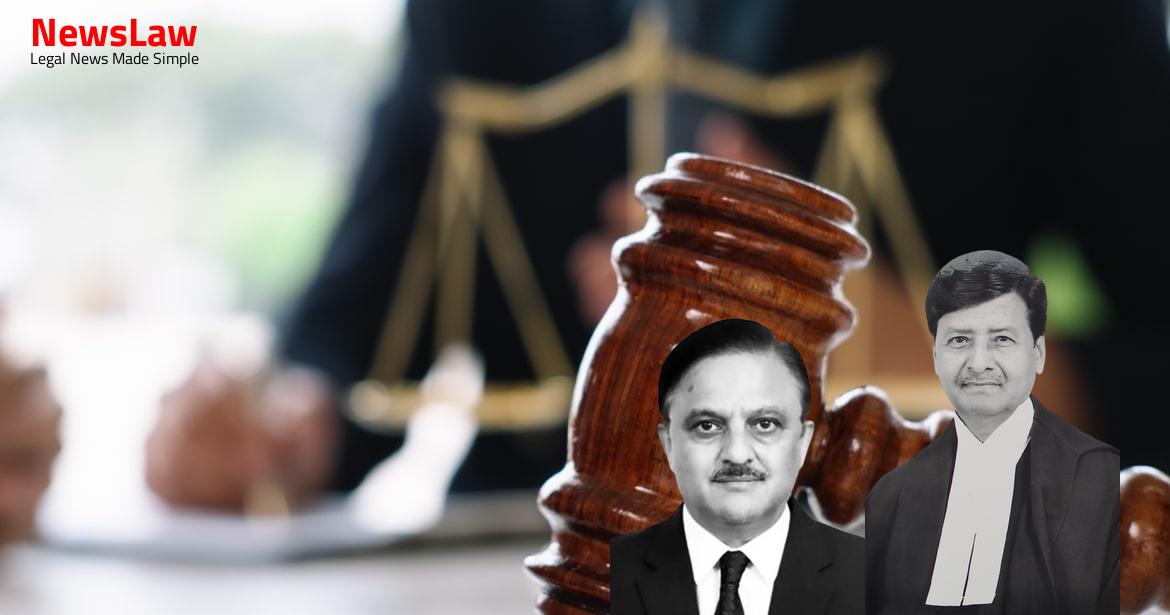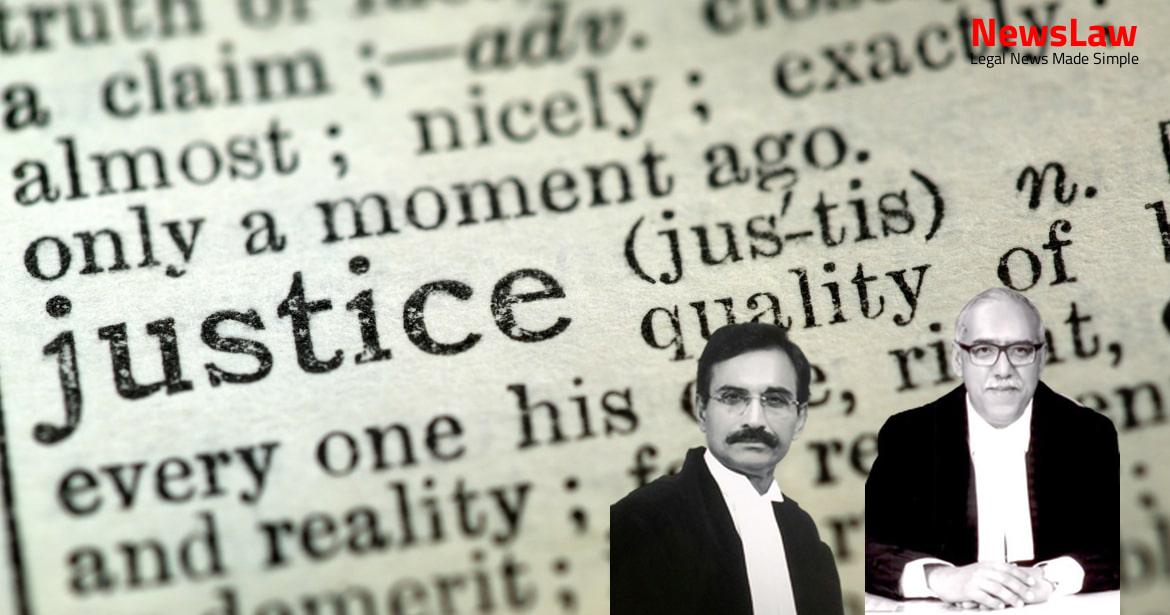The Gala v. Ramani case revolves around a dispute over easementary rights in which the Gala family claimed rights over a road in Survey No.57 Hissa No.13A/1, owned by the Ramani family. This legal battle unfolded through various court instances, with the Gala’s predecessors-in-interest facing off the Ramani’s over access to a disputed road. Let’s delve into the details and implications of this crucial case.
Facts
- Vasant Ramchandra Borkar sold a piece of land to Dharmadhikari, Survey No.57 Hissa No.13A/2.
- Woler Francis became the exclusive owner of Survey No.48 Hissa No.15.
- Ramchandra Borkar acquired the remaining land from the government.
- The Gala’s claimed easementary rights over a road in Survey No.57 Hissa No.13A/1 owned by the Ramani’s.
- Woler Francis succeeded by Joki Woler Ruzer, accepting the High Court verdict.
- Land Survey No.48 Hissa No.15 was sold to Woler Francis by the government.
- The Gala’s filed Suit No.14 of 1994 for easementary rights over the road, leading to a dispute with the Ramani’s.
- Witnesses and evidence presented in court by both parties.
- The Gala’s were restrained from disturbing Ramani’s possession over the land.
- The primary issue was whether the Gala’s had easementary rights over the disputed road.
- Descendants of the subsequent purchaser Mahendra Gala also involved in the suit.
- Government acquired properties of Ramchandra Borkar due to arrears.
- The Ramani’s purchased part of the land and resisted Gala’s claim of easementary rights.
- The suit was decreed in favor of the Gala’s by the first instance court in 2003.
- Judgment and order passed by court of first instance set aside
- Suit decreed stating Gala’s have no right of way
- Judgment and decree set aside in appeal by Ad-hoc District Judge-2, Raigad
- High Court upheld the appellate court’s judgment and order
Also Read: Navigating Limitation Laws: A Case Study on Justice and Statutory Constraints
Arguments
- The Gala’s have claimed easementary rights over a rasta based on a Sale Deed dated 17.09.1994.
- The term ‘last many years’ used in their pleadings does not meet the legal requirement of 20 years for acquiring easementary rights through prescription.
- The land to be enjoyed is called ‘Dominant Heritage’ while the land on which easement is claimed is called ‘Servient Heritage’.
- Gala’s argued that they have no alternative access to their land except through the disputed rasta, emphasizing the necessity of easement.
- The original plaintiff and Gala’s did not specifically claim 20 years of enjoyment of easementary rights over the rasta.
- The Gala’s assertion of using the rasta for the beneficial enjoyment of their land for ‘last many years’ was contested by Ramani’s.
- Section 15 of the Act mandates peaceful enjoyment without interruption for over 20 years to acquire easementary rights by prescription.
- Navneet Liladhar Hariya, the Power of Attorney holder of the Gala’s, stated the existence of a 20ft. road on Survey No.57 Hissa No.13A/1 used as an approach road to Survey No.48 Hissa No.15.
- Counsel for the appellants argued for liberal construction of pleadings but emphasized that essential legal requirements must be pleaded for establishing a right.
- Access to the Dominant Heritage is claimed to be completely blocked due to lack of sufficient compliance with statutory requirements.
- The Gala’s are said to have acquired easementary rights under a Sale Deed dated 17.09.1994, which does not extinguish even if the necessity has ceased to exist.
- Cited case law of Dr. S. Kumar & Ors. vs S. Ramalingam to support the argument that granted easement rights cannot be defeated or extinguished solely due to the cessation of necessity.
- The disputed access road was previously used by Gala’s predecessors but is now being contested by the Ramani’s.
- Deposition of Sanjay Borkar, a member of the original landowners’ family, stated that neither the original plaintiff nor the Gala’s had a right of way on the land, suggesting an alternative access route.
- As the Gala’s claim to have no other way to reach their land, they are allegedly being unfairly denied access and connectivity.
Also Read: Conviction Set Aside: Court Grants Benefit of Doubt in Assault Case
Analysis
- It is settled in law that a fact which is not specifically pleaded cannot be proved by evidence.
- No evidence on record to establish that the government transferred any easementary right over the rasta in question to Francis Woler.
- Gala’s have not proved uninterrupted use of the land for over 20 years prior to their ownership.
- Photocopy of a document is inadmissible as evidence.
- Gala’s were not entitled to any easementary right by necessity upon the disputed rasta.
- Gala’s failed to prove acquisition of easementary right over the rasta.
- Power of Attorney holder can only depose about facts within his personal knowledge.
- First appellate court can overturn findings of the court of first instance if against evidence on record.
- Neither Gala’s nor their predecessor-in-interest testified in court regarding easementary rights.
- Gala’s predecessor-in-interest never acquired easementary rights over the rasta to legally transfer it to Gala’s.
- Absence of evidence to show acquisition of easementary right over the rasta prior to the suit being instituted.
- Gala’s failed to prove acquisition of easementary right under the sale deed.
- General Power of Attorney holder cannot depose on matters outside his personal knowledge.
- Findings returned by the court that an alternative access to the Dominant Heritage exists, affecting easement of necessity.
- Gala’s predecessor-in-interest did not acquire the property with easementary rights over the rasta.
- Gala’s did not show that their predecessor-in-interest had any easementary rights over the disputed rasta.
- Previously, a General Power of Attorney holder could not become a witness on behalf of the party represented as the power to appear in the witness box could not be delegated.
- In the case of Janki Vashdeo Bhojwani vs. IndusInd Bank Ltd., it was held that a Power of Attorney holder can maintain a plaint on behalf of the represented person if they have personal knowledge of the transaction.
- The Power of Attorney holder or legal representative should have knowledge about the transaction in question to present the truth related to the grievance or offense.
- The Power of Attorney holder can depose and verify on oath before the court only if they have witnessed the transaction as an agent and have adequate knowledge about it; otherwise, they cannot be examined as a witness.
- The Gala’s have not acquired easementary right over the disputed rasta.
- No basis was found to suggest the acquisition of easementary right through prescription, necessity, or agreement.
- The appellate courts and High Court did not err in dismissing Suit No.14 of 1994 brought by the plaintiffs.
- Suit No.7 of 1996 by the defendants was rightfully decreed by the courts.
- The appeals lack merit and are therefore dismissed.
Also Read: Supreme Court Upholds Conviction of Appellant for Murder of Spouse
Case Title: MANISHA MAHENDRA GALA Vs. SHALINI BHAGWAN AVATRAMANI (2024 INSC 293)
Case Number: C.A. No.-009643-009643 / 2010



